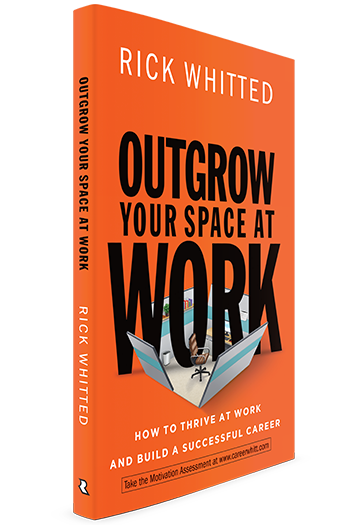July 18, 2016
Measuring success in the Second Half.

By Jeffrey Green
“Mom, am I taller? Can we measure where I am on the door frame, like we did last year?”
In retrospect, when we found that the pencil mark above our child was higher than the previous one, I was as pleased as she was. That year, during a routine child wellness exam, her pediatrician commented that her measurements were strange. While on the surface my daughter was her normal, bubbling and glowing self, my wife and I knew things had changed. We had experienced the shift in her maturity and energy; and as such, we suspected that some of her physical issues where real and not lack of rest. After the physician examined the measurement more closely, he proclaimed that she had grown seven inches over the past year! She reveled in her newfound height, as she was within inches of her childhood dream—her life goal—of being six feet plus. Not to mention, the benefits of a new wardrobe!
I would suspect that my daughter is no different than anyone in our society. Each year we seek measurable growth—both personally and professionally—to support and validate our goals and ambitions. As I progressed in my career, I enjoyed numerous opportunities to evaluate my growth from one year to the next. I was captivated by what each successive evaluation meant; both in terms of financial and role advancement, as well as in the elevation of my professional reputation. With the benefit of hindsight, it’s undeniable what that maturation meant to me—career growth. I equated “thriving” with job progression from one year to the next.
As our country continues to address the ramifications of the 2008 financial meltdown, there is a segment of the US population—the late baby boomers, ages 55-60—who have lost roughly a decade of professional growth. Simultaneously, the baby boomer segment of our society are on pace to see ten thousand individuals retire per day for the next 15+ years (Pew Research Center, 2010). As a baby boomer myself, born in the late 50’s, I have not lost my yearning for growth. However, the type of career growth I receive and pursue, is clearly different from the growth of my early career.
I held different dreams of what I would be doing at this point in my life. My emotional craving for such growth, while not dissimilar, does not match the craving held by those of generation X, generation Y, or the millennials. What has changed for me, however, is how I assess my hierarchy of values. Which, in turn, influences my proxy for success.
Like many my age, I have suffered a few setbacks in my finances and my career. As a consequence of the 2008 financial meltdown, I had to alter my dream of early retirement and reassess my financial confidence. Yet, as earlier in my life, I still yearn for year over year career advancement. Consequently, I’ve had to change “what” career progression looks like for me. As compared to solely looking at advancement, my career metrics now include questions such as: Am I of value in my work? Am I happy with the contribution asked of me? Can I care for my family as I did before? Is what I am doing compensatory to my qualifications?
Perhaps the most prominent of these new metrics is that my career is not planned to span decades. As such, my goals are filtered through a value enrichment lens, not skill development lens. Therefore, I suspect that the massive shift in workforce trends (baby boomers make up 26% of our population), will also shift how we choose the workplace. Our workplace will no longer exist solely for income accomplishment and identity, but also for making our lives complete, as we gracefully age.
Do not misinterpret my motives. Finances, status, and position are important to me. However, in my latter professional years I have found that fulfillment, value obtainment, and mentoring—or “paying forward”—are necessary measurements of my career achievement. And surprisingly, they have been equally fulfilling. It’s human nature to seek metric clarity. So, as I evaluate my current status as a boomer, I incorporate things that were not nearly as pertinent earlier in my life:
1. As I work out the remaining years of my career what can I do to “shed” the activities that do not bring satisfaction?
2. Who am I as an employee and how can I be identified as a “valued” employee?
3. What do I want to “take home” at the end of each day, that measures my success?
Individually we are all at different stages of life. Some are planning for retirement, or working to pay the bills. Others are still enjoying their life avocation and do not see an end just yet. In my youth, I would work through a difficult work environment to gain the experience, which would in turn assist my resume, or propel me toward my next promotion. Today, I am more likely to shed activities which are focused unnecessarily on inward or outward “stuff” that is no longer helpful to my value pursuits.
This shedding may require replacing old skills with educational experiences, gaining employer or professional certification, shifting into a new industry, or shifting out of past work. Therefore, in order to adequately shed that which is unnecessary, there must be an assessment of what we value, how we currently measured them, and to what level we seek to enjoy them in the future. The tools needed to measure these enriching experiences may include professional coaching. The consultation of a professional who measures individuals in your respective field, and can help identify your strengths and the character traits that make you stand out. Once started, you’ll need a plan to “shed the unnecessary “things that are no longer needed to enjoy your remaining career.
Do not be surprised, as I was. This shift is likely to surprise coworkers, colleagues, family members, and friends alike. So, as I think about my career moving forward, my VALUES are the lens that I’m using to measure my progression. It is still, at times, a painful shedding of earlier expectations that I’ve relied on to feel promoted. But the more I hone in on what I value, the more excited I become about achieving my renewed life goals.
